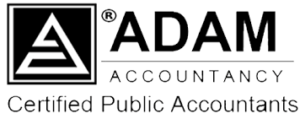 Legislation has been introduced into the law book which will result in brining new tax- The Residential Property Developer Tax (RPDT). On the publication of draft legislation, a consultation was followed on the design of the tax while comments were sought out.
Legislation has been introduced into the law book which will result in brining new tax- The Residential Property Developer Tax (RPDT). On the publication of draft legislation, a consultation was followed on the design of the tax while comments were sought out.
The main drive of the introduction of the tax was to wake Grenfell tower cladding scandal. This was announced in February as portion of Government’s Building Safety Package. It was done while expecting a sheer raise in revenue of the vital remediation works. The Government expected the owners and builders to meet the remedial costs to make sure all cladding is safe and surpassing the need of passing it to the leaseholder. Also, in cases, where the cost is not met as required, or the developer doesn’t exist anymore, the government will be liable to support the owner in meeting the cost.
The package included two revenue uplifting measure where RPDT is among these. The other one is a new Gateway 2 levy introduced mainly for certain developers seeking to build high-rise structure anywhere in England.
Nature of the new tax
This new tax (RPDT) is time-limited and only largest developers of residential properties (as per the money they make from UK residential development) are liable to pay it. 2022 is the expected year when this tax will be introduced. The goal is to raise £2 billion in the next decade.
Scope
Companies that have concerns and does activities in the residential property development are liable to pay this tax. These activities include the role of residential property developer while being on or in connection with land in the UK, which the developer is interested in and aim to advance residential property. The activities include:
- Designing residential property
- Dealing in residential property
- Seeking planning permission related to it
- Constructing the property
- Marketing for the property
- Management of the residential property
- And any activity in between the above-mentioned activities.
Furthermore, some of the properties doesn’t come in category of “Residential Property” including residential properties care homes for aged care, residential properties for student accommodation or armed forces, individuals of emergency services and people working in hospitals.
Tax-free allowance
As already mentioned in the above sections that this tax is imposed on certain developers. The tax is applied on profits they make. The tax is calculated in accordance with a set of formulas stated in the draft legislation. Also, the tax is not payable until the profits surpass its allowance for the period of accounting.
The allowance thus creates a limitation which makes only large residential property developers liable to the tax.
As per the announcements in the Autumn Budget (27 October), the profits of £25 million or above will become under this and will be charged at the rate of 4%.
Experience accountants in slough have deep knowledge to manage Residential Property Developer Tax. They are well versed with the nature of the new tax, scope, and tax-free allowance.

